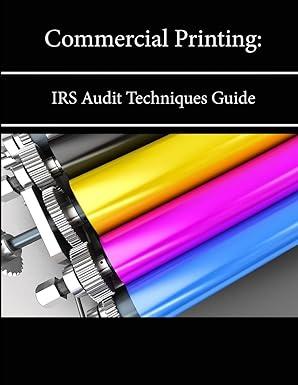Question
41. Which of the following statements holds true for the term, unintentional discrimination? Select one: a. It refers to discrimination expressed by an individual within
41.
Which of the following statements holds true for the term, unintentional discrimination?
Select one:
a. It refers to discrimination expressed by an individual within an organization that may or may not share the outlook.
b. It refers to discrimination embedded in an organizations culture.
c. It refers to an episode of discrimination not indicative of an individuals or an organizations standard practice.
d. It refers to discriminatory acts stemming from unrealized prejudice.
e. It refers to recurrent episodes of discrimination indicative of an individuals or an organizations standard practice.
42.A rail road is being proposed by the government to join two neighboring cities. The rail road will significantly reduce the travel time between the two cities. The only concern is that to set up the infrastructure for the rail road, approximately ten square miles of forests will need to be cleared. The forest is known for its flora and fauna and regularly attracts people from all over the country. Any construction activity in the forest would deprive future generations of this rich heritage. Thus the plan for the proposed rail road has been shelved because of the idea that the environment should be protected so that future generations may live in it, and have the choices as individuals have today. The above is an example of:
Select one:
a. social fairness.
b. an aesthetic argument.
c. an environmental impact statement.
d. incentives.
e. externalities.
43.Which of the following statements holds true for the concept of fairness?
Select one:
a. It refers to the duty to treat equals equally and unequals unequally.
b. It refers to the duty to compensate others when we harm them.
c. It refers to the duty to keep our promises and hold up our end of bargains.
d. It refers to the duty to thank and remember those who help us.
e. It refers to the idea that when you set up rules for resolving dilemmas, you dont get to know beforehand which side of the rules you will fall on.
44.Susan and Michelle plan to steal office stationery, sell it, and keep the profits. John overhears their plans and immediately reports what he heard to an authoritative figure in the organization. This is an example of:
Select one:
a. conflict of interest.
b. a kickback.
c. reporting.
d. a bribe.
e. whistleblowing.
45._____ refers to the argument that discrimination is wrong because it treats people unequally for reasons not involving merit.
Select one:
a. The fairness argument
b. The rights argument
c. The temperance argument
d. The courage argument
e. The utilitarian argument
Step by Step Solution
There are 3 Steps involved in it
Step: 1

Get Instant Access to Expert-Tailored Solutions
See step-by-step solutions with expert insights and AI powered tools for academic success
Step: 2

Step: 3

Ace Your Homework with AI
Get the answers you need in no time with our AI-driven, step-by-step assistance
Get Started


